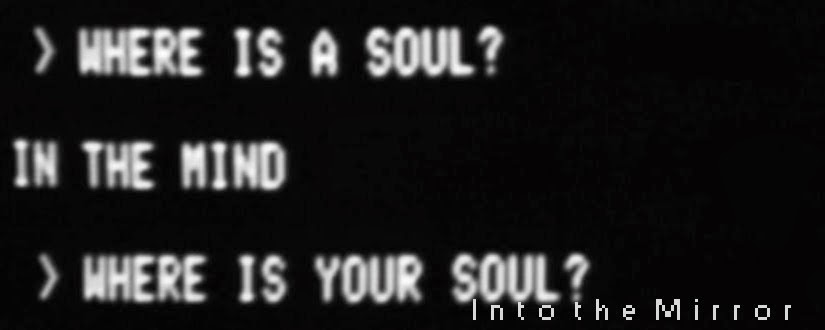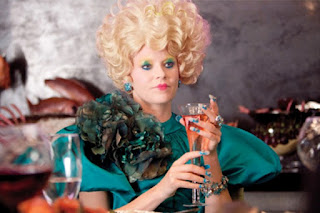I suppose that I'm using all of this as a qualifier for my own experience with the two franchises. My ignorance about The Hunger Games stood in stark contrast to my long-enduring love of Battle Royale. I saw the movie for the first time in 2004 and have watched it a dozen times since, in addition to reading the book and sitting through its piece of shit sequel. I don't say this in some bid to sound savvy or enlightened, but simply to demonstrate that cultural awareness is colored by a number of factors that we aren't necessarily in control of: generation, milieu, aesthetic preference. My friends and I had eight extra years between the release of the Battle Royale movie and The Hunger Games to apprise ourselves of this hyper-violent Japanese phenomenon. If the film was ever particularly obscure, it certainly isn't anymore; it has 70,000 votes on IMDB, made a tidy sum of money in Japan, and received numerous bootleg releases in America through retailers as large as Hot Topic. I even have more friends on Facebook who like Battle Royale than The Hunger Games, a telling if not anecdotal indication of each franchise's social significance to me.
With this in mind, I went to see The Hunger Games and found it to be a very good movie. Assessed in terms of craftsmanship, it objectively beats Battle Royale in just about every way imaginable.
Whether to the book's credit or the filmmakers', The Hunger Games' greatest asset over Battle Royale is its world-building. Both films take place in dystopian futures, but Battle Royale has no particular interest in exploring this any more than a set of meaningless title cards at the beginning of the film and a couple of visually unimaginative scenes in a schoolhouse. The Hunger Games, meanwhile, manages both a meticulous eye and surprising subtlety in developing a post-war continent characterized by its impenetrable class divide. Its top-down development of Panem, starting with a much more coherent narrative set-up for the violence and extending all the way toward the rich costume and set design, simply makes the film feel more important, more alive. Through its cohesive creation of setting, it establishes a refreshingly mature foundation for all sorts of intriguing themes: the commercialization of violence, economic politics, and the need for constant performance in a media-saturated world. Battle Royale simply stops giving a rat's ass about anything approaching depth as soon as it gets its kids on the island.
Then there's the question of the actual people in this world. Jennifer Lawrence proves herself vastly more capable of carrying a movie than Tatsuya Fujiwara. "Thank you for your consideration" says more about her character than every action Fujiwara ever takes manages to. Character-wise, there's no doubt in my mind that Katniss Everdeen out-performs Shuya Nanahara in every conceivable way, be it charm, personality, combat prowess, or personal ethics. Shuya is a dull kid who never deserved to win the Battle Royale, stumbling his way through simply by virtue of allying with Shogo; Katniss' victory is both entirely understandable and worth celebrating. This is not to say that Battle Royale is totally without its advantages, among which are a much clearer sense of geography (so important in these Most Dangerous Game scenarios) and less jittery camera work (presumably because it feels no need to avoid the violence of its subjects' deaths), but to pit the two against each other brings out its deficiencies in an extremely unflattering light.
And yet, after all of this, I still prefer Battle Royale.
The brutality of the content in both of these works is a tipping point that cannot be ignored. The Hunger Games gives us nasty scratches, bricks covered in blood, shots in medium-frame...insinuations. In Battle Royale, a 14-year-old girl stabs a boy in the penis twice. Beheadings, hatchets to the dome, and gushing throats aplenty. Warped in both subject matter and execution, it captures an overwhelming ugliness that The Hunger Games never even dreams of and that drives home, so much more effectively, the horror of this situation. It's played very campily, but in a way that strives to subvert the crushing violence. It epitomizes the chaos that would arise from a government pitting its own children against one another, and simply by virtue of that understanding alone does Battle Royale win out for me. Ultimately, the aestheticization of violence in The Hunger Games just dulls the edge, making it more palatable for a larger audience. Battle Royale is dirty and mean and makes you realize how truly awful a situation like this would be.





